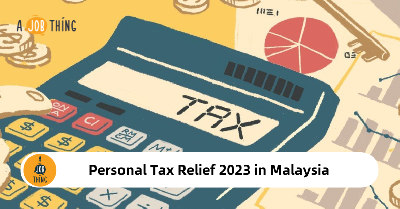
HR Guide: The Basics of Employee Bonus Plans
Create Job Description Using AI
Write appealing job descriptions for any job opening to attract the most qualifield and suitable candidates. FOR FREE.
try now
Nowadays, there are so many types of employee bonuses. It's up to HR to keep track of all of them and evaluate whether these bonuses fulfil their purposes. This calls for an employee bonus plan.
What is an employee bonus plan?
An employee bonus plan is a document that contains the company's plan for the payments of bonuses to its employees on an annual basis. Businesses that regularly give bonuses to their employees are encouraged to keep an employee bonus plan.
Here are the reasons why you should have an employee bonus plan:
- It will motivate employees to improve their performance and help the organisation accomplish its goals.
- Quality candidates tend to apply to a company with attractive employee bonus plans.
- It is a must to fully inform the employees about their rights and privileges including their compensation, benefits and bonuses. They will be informed in advance what they need to do to earn these bonuses.
- It is easier for a business to control the amounts that it will pay in bonuses to its employees with a bonus plan in place. It can set limited and make the right adjustments if an when required.
- It's also easier for the management to budget and forecast expenditures. The business's financial planning will refer to the bonus plan from time to time.
.jpg)
With a good employee bonus plan, you can make the right adjustments in your company budget.
Types of employee bonus plans
Here a few of the more common employee bonus programs that are being used by businesses:
a. Performance bonus
The businesses sets goals that employees must accomplish. Once the employees do, they will be entitled to a corresponding bonus, in recognition of their outstanding performance.
This type of performance bonus plan is made to continuously give employees an incentive to perform better than average in their jobs or assigned tasks and responsibilities.
This bonus is usually given on a regular or ongoing basis, such as annually or semi-annually. Another reason why performance bonus is highly encouraged is to keep a business's top employees satisfied.
b. Ad Hoc bonus
Ad Hoc bonus occurs when the business provides an unplanned or unexpected bonus as a way to show its gratitude to the workers for exceptional performance in a one-off project or assignment.
Since the nature of this bonus is mostly unplanned, it is slightly more flexible than other plans. That means that the business is not expected to have an upfront commitment about it, therefore, payment for this type of bonus can be determined on the spot which is when the results come in.
One more advantage of this plan is the amount is not important. The bonus does not have to be substantial to be considered adequate. The mere fact that an amount, no matter how small, is given is already something that the employees will welcome.
c. Milestones bonus
Alternatively known as project bonus, this bonus plan covers the bonuses that focus on deadlines. These bonuses are usually short-term in nature, generally ranging from a couple to several months.
These bonuses are also often high profile in nature, which requires that they be well-documented and communicated to all parties involved.

A good employee bonus plan can spur productivity within the company.
Elements of an employee bonus plan
An effective bonus program should have these elements:
1. Simplicity
A bonus plan should be simple and straightforward so employees and the management can easily understand the details.
2. Equatability
It is crucial for a company to have a bonus program that is fair across the whole organisation. It would not be right if one department has a bonus program, while others do not. If your company has a bonus program in place, make sure that the terms apply to everyone, not just a chosen number of departments.
3. Timeliness
Timeliness refers to the release of the bonuses. The frequency may vary according to:
- the achievement of specific milestones set by the company; or
- the job level; or
- the department.
There should be no unnecessary delays when it comes to granting bonuses. It the bonus is granted as a reward for an excellent performance for a certain period, provide the bonuses at the end of that same period or during the next period.
The employees would not appreciate it if you pay their bonuses late.
4. Relevance
The bonus should be meaningful to the management and the employees. There should be a meaning attached to the bonus so the employees will feel a higher sense of fulfilment, aware that they are receiving the rewards because they deserved it.
5. Materiality
If the amount of the bonus is too small, employees will find it hard to appreciate it. The amount of bonus must be significant enough to match their effort. Otherwise, they would not regard it as a bonus or reward.
A company should have a well-designed employee bonus plan in place. Business owners may think that these plans are only for the benefit of the employees, but in the long run, even the administration and the overall performance of the company will be affected by how the bonus programs are designed and implemented.
Source: Cleverism
Hiring Giving You a Headache? You've found the solution! Go to AJobThing.com to access our recruitment services.
Related article
5 Interview Questions You Should Not Ask
HR Guide: Job Analysis and Its Methods
How to Identify a Disengaged Employee





